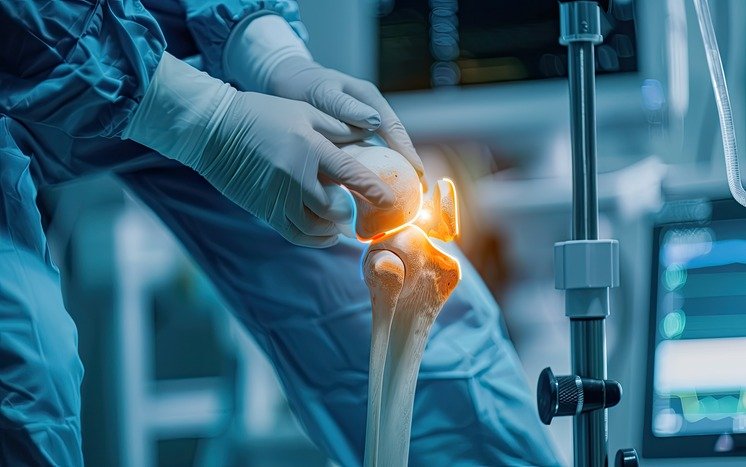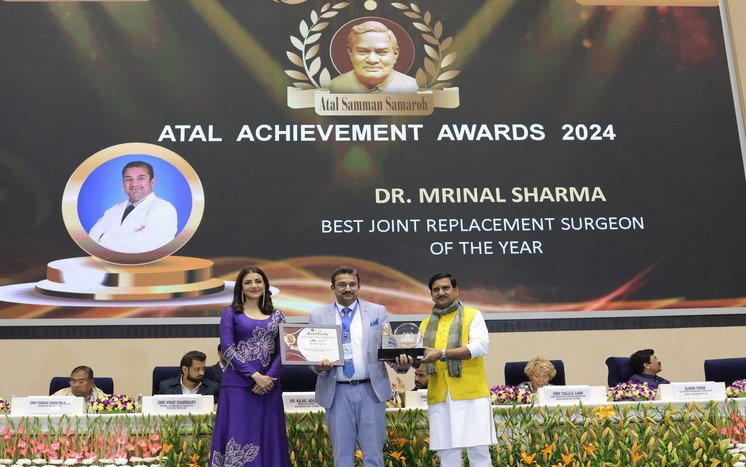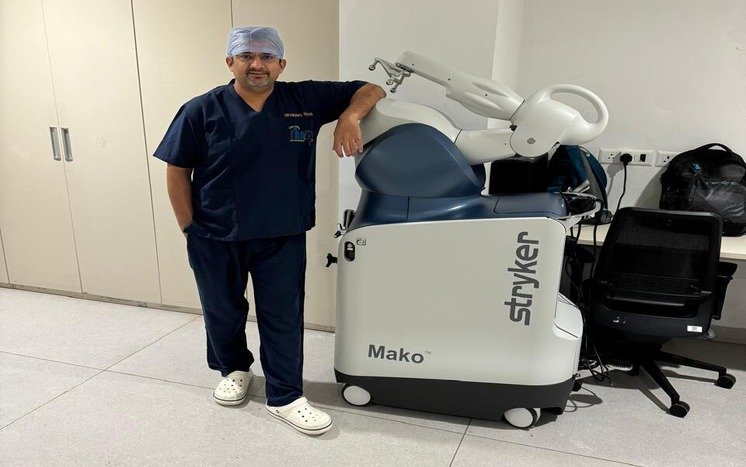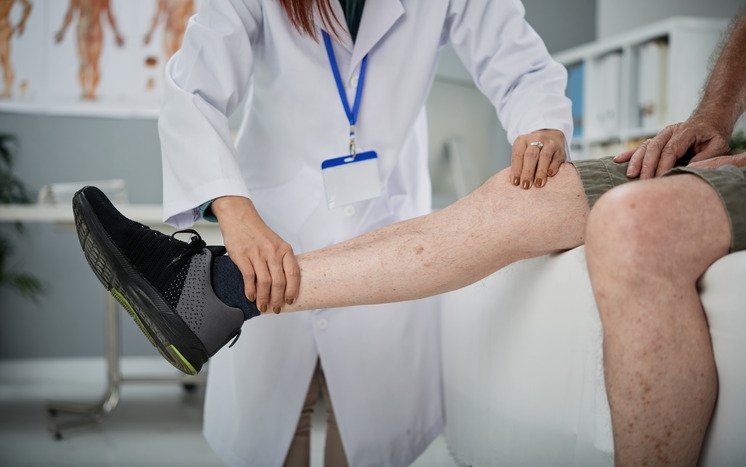
10:00am to 04:00pm (Mon to Sat) - Amrita Hospital, Faridabad
06:00pm to 08:00pm (Mon to Sat) - Arthrocare Clinic, Noida
10:00am to 04:00pm (Mon to Sat) - Amrita Hospital, Faridabad
06:00pm to 08:00pm (Mon to Sat) - Arthrocare Clinic, Noida
 September 6, 2024
September 6, 2024
In recent years, advancements in medical technology have revolutionized various aspects of healthcare, and knee surgery is no exception. Robotic Total Knee Replacement (TKR) has emerged as a game-changer, offering unprecedented precision and improved outcomes. This blog delves into the future of knee surgery, focusing on how robotic technology is transforming TKR and exploring why this approach is considered a significant leap forward in orthopedic care & leading the way to the robotic total knee replacement surgery by Dr. Mrinal Sharma, the best knee replacement surgeon in India.
Traditional knee replacement surgery involves the manual alignment of the knee joint components, which requires the surgeon to rely on their skills and experience to achieve the best possible outcome. Robotic TKR takes this a step further by integrating advanced robotics and computer-assisted technology to enhance precision.
Robotic TKR offers several advantages over traditional methods, including:
Dr. Mrinal Sharma is a highly regarded figure in the field of orthopedic surgery, particularly known for his expertise in robotic hip replacement. His innovative approach and skill in utilizing advanced robotic technology have set a high standard in the field.
The field of robotic TKR is continually evolving, with ongoing research and technological advancements pushing the boundaries of what is possible. Future developments may include:
The future of knee surgery is undeniably exciting, with robotic Total Knee Replacement at the forefront of this transformation. The precision, reduced recovery time, and improved outcomes offered by robotic TKR represent a significant advancement in orthopedic care. As technology continues to progress, patients can look forward to even more refined and effective surgical options.
Dr. Mrinal Sharma’s expertise in robotic surgery exemplifies the potential of this technology, highlighting its benefits and setting a high standard for the field. With continued innovation, robotic TKR will likely become an even more integral part of orthopedic surgery, offering hope for better outcomes and enhanced quality of life for patients.





© 2024 Dr. Mrinal Sharma | All rights reserved. Designed and Developed by DigiTrend